#local timber products
Explore tagged Tumblr posts
Text
Urban Woodshed

Website: https://www.urbanwoodshed.com
Address: Saskatoon, Saskatchewan, Canada
Urban Woodshed specializes in creating unique, handmade home décor items. The company's products, often crafted from repurposed materials like whiskey barrels and locally harvested timber, offer a blend of sustainability and style. They cater to those looking to add a touch of warmth and individuality to their living spaces.
Facebook: https://www.facebook.com/urbanwoodshed/
Instagram: https://www.instagram.com/woodshedurban
Keywords:
rustic home accents
whiskey barrel furniture
sustainable home accessories
nature inspired home accessories
nature inspired interior design
creative home solutions
personalized home accessories
handcrafted wooden products
eco conscious interior design
handmade home decor
repurposed material furnishings
custom decor pieces
whiskey barrel creations
local timber products
unique home styling
eco friendly dcor solutions
artisan crafted home items
bespoke wooden dcor
sustainable living dcor
eco conscious home styling
unique interior decorations
artisanal home furnishings
locally sourced dcor
handmade wooden accents
reclaimed wood home dcor
custom designed furnishings
sustainable living accents
eco friendly home styling
local craftsmanship dcor
unique sustainable furnishings
repurposed wood creations
custom made home accents
artisan designed home items
wooden dcor craftsmanship
sustainable living accessories
whiskey barrel home pieces
nature themed home styling
local artisans home goods
handcrafted sustainable items
reclaimed timber home accessories
bespoke sustainable furnishings
artisanal woodwork for homes
locally crafted interior dcor
creative wooden home solutions
eco friendly custom designs
rustic handmade home items
personalized sustainable living
whiskey barrel home accents
nature inspired custom pieces
saskatoon handmade home dcor
sustainable home accessories in saskatchewan
repurposed material furnishings saskatoon
custom decor pieces saskatchewan
whiskey barrel creations in saskatoon
local timber products saskatchewan
unique home styling saskatoon
eco friendly dcor solutions in saskatchewan
artisan crafted home items saskatoon
rustic home accents saskatchewan
bespoke wooden dcor saskatoon
personalized home accessories in saskatchewan
sustainable living dcor saskatoon
eco conscious home styling in saskatchewan
unique interior decorations saskatoon
handcrafted wooden products saskatchewan
creative home solutions in saskatoon
artisanal home furnishings saskatchewan
locally sourced dcor saskatoon
nature inspired home accessories in saskatchewan
handmade home dcor near me
sustainable home accessories near me
repurposed material furnishings near me
custom decor pieces near me
whiskey barrel creations near me
local timber products near me
unique home styling near me
eco friendly dcor solutions near me
artisan crafted home items near me
rustic home accents near me
bespoke wooden dcor near me
personalized home accessories near me
sustainable living dcor near me
eco conscious home styling near me
unique interior decorations near me
handcrafted wooden products near me
creative home solutions near me
artisanal home furnishings near me
locally sourced dcor near me
nature inspired home accessories near me
#rustic home accents#whiskey barrel furniture#sustainable home accessories#nature inspired home accessories#nature inspired interior design#creative home solutions#personalized home accessories#handcrafted wooden products#eco conscious interior design#handmade home decor#repurposed material furnishings#custom decor pieces#whiskey barrel creations#local timber products#unique home styling#eco friendly dcor solutions#artisan crafted home items#bespoke wooden dcor#sustainable living dcor#eco conscious home styling#unique interior decorations#artisanal home furnishings#locally sourced dcor#handmade wooden accents#reclaimed wood home dcor#custom designed furnishings#sustainable living accents#eco friendly home styling#local craftsmanship dcor#unique sustainable furnishings
1 note
·
View note
Text
"In an unprecedented step to preserve and maintain the most carbon-rich elements of U.S. forests in an era of climate change, President Joe Biden’s administration last week proposed to end commercially driven logging of old-growth trees in National Forests.
Secretary of Agriculture Tom Vilsack, who oversees the U.S. Forest Service, issued a Notice of Intent to amend the land management plans of all 128 National Forests to prioritize old-growth conservation and recognize the oldest trees’ unique role in carbon storage.
It would be the first nationwide amendment to forest plans in the 118-year history of the Forest Service, where local rangers typically have the final word on how to balance forests’ role in watershed, wildlife and recreation with the agency’s mandate to maintain a “sustained yield” of timber.
“Old-growth forests are a vital part of our ecosystems and a special cultural resource,” Vilsack said in a statement accompanying the notice. “This clear direction will help our old-growth forests thrive across our shared landscape.”
But initial responses from both environmentalists and the logging industry suggest that the plan does not resolve the conflict between the Forest Service’s traditional role of administering the “products and services” of public lands—especially timber—and the challenges the agency now faces due to climate change. National Forests hold most of the nation’s mature and old-growth trees, and therefore, its greatest stores of forest carbon, but that resource is under growing pressure from wildfire, insects, disease and other impacts of warming.
Views could not be more polarized on how the National Forests should be managed in light of the growing risks.
National and local environmental advocates have been urging the Biden administration to adopt a new policy emphasizing preservation in National Forests, treating them as a strategic reserve of carbon. Although they praised the old-growth proposal as an “historic” step, they want to see protection extended to “mature” forests, those dominated by trees roughly 80 to 150 years old, which are a far larger portion of the National Forests. As old-growth trees are lost, which can happen rapidly due to megafires and other assaults, they argue that the Forest Service should be ensuring there are fully developed trees on the landscape to take their place...
The Biden administration’s new proposal seeks to take a middle ground, establishing protection for the oldest trees under its stewardship while allowing exceptions to reduce fuel hazards, protect public health and safety and other purposes. And the Forest Service is seeking public comment through Feb. 2 (Note: That's the official page for the proposed rule, but for some reason you can only submit comments through the forest service website - so do that here!) on the proposal as well as other steps needed to manage its lands to retain mature and old-growth forests over time, particularly in light of climate change.
If the Forest Service were to put in place nationwide protections for both mature and old-growth forests, it would close off most of the National Forests to logging. In an inventory concluded earlier this year in response to a Biden executive order, the Forest Service found that 24.7 million acres, or 17 percent, of its 144.3 million acres of forest are old-growth, while 68.1 million acres, or 47 percent, are mature."
-via Inside Climate News, December 20, 2023
-
Note: This proposed rule is current up for public comment! If you're in the US, you can go here to file an official comment telling the Biden administration how much you support this proposal - and that you think it should be extended to mature forests!
Official public comments really DO matter. You can leave a comment on this proposal here until February 2nd.
#united states#us politics#conservation#climate change#sustainability#forests#old growth forest#national forest#carbon emissions#climate action#climate crisis#forest service#biden#biden administration#public comment#good news#hope#it took me soooo long to hunt down the actual public comment link#by which I mean like 10 minutes but like#that's too long! especially considering I am way better at navigating language and bureaucratic websites like this#than A LOT of people#why tf can't you just comment on the Official Website For Public Commenting?#aka regulations.gov#baffling#anyway the good news is I did find it so pls do go ahead and submit a comment if you can
3K notes
·
View notes
Text

A new executive order signed by President Donald Trump over the weekend could have a disastrous effect on endangered species, climate change and local economies, warned conservation groups.
The order encouraging the “Immediate Expansion of American Timber Production” seeks to erode Endangered Species Act (ESA) protection rules in favor of the expansion of tree felling across 280 million acres of United States national forests, as well as other public lands, for timber, reported The Guardian.
“This Trump executive order is the most blatant attempt in American history by a president to hand over federal public lands to the logging industry,” said wildfire scientist Chad Hanson with the John Muir Project. “What’s worse, the executive order is built on a lie, as Trump falsely claims that more logging will curb wildfires and protect communities, while the overwhelming weight of evidence shows exactly the opposite.”
The order goes as far as setting an annual target for the amount of timber offered for sale, along with other measures, which could lead to widespread clear-cutting, a press release from Earthjustice said.
344 notes
·
View notes
Note
OH MY GOD I LOVE THESE PROMPTS WTF CAN I REQUEST MORE THAN ONE!!!!! if not, still i would like to order a martini 🍸🌟 with a prompt number 103 for mr theodore nott my beloved
theo nott x reader
prompts ; ' kissing someone off their face '
𝐍𝐀𝐕𝐈𝐆𝐀𝐓𝐈𝐎𝐍 ✦ 𝐲𝐨𝐮'𝐫𝐞 𝐢𝐧𝐯𝐢𝐭𝐞𝐝 𝐭𝐨 𝐦𝐲 𝐝𝐢𝐧𝐧𝐞𝐫 𝐩𝐚𝐫𝐭𝐲 !

if you weren't to be married in four days, you were sure your hen party would've been the highlight of your week.
your friends had opted to take you out to a local bar and then go out dancing and in the midst of darkness with the occasional flash of neon lights, you had all downed what your sober friend had calculated as 18 units of alcohol.
each.
so by the time you stumbled in through the door of your flat you were truly struggling to stand up straight, even with the aid of pansy under your arm.
" okay, sweetheart, let's get you into bed " she said, leading you towards the bedroom.
but it seemed you had other plans.
" nooo, i can't go to bed without teddy "
your whining elicited a laugh from the girl under your arm.
" i know, but he'll be home soon. enzo said they were leaving the club 15 minutes ago, so let's get you to bed and-"
" baby! you here ?"
the familiar timber of theo's voice flooded your flat and your smile grew.
pansy couldnt stop you from turning around and heading back to the door to find theo.
" teddy! "
and you found him with two boys with blurry faces flanking his sides.
all your drunk mind could focus on was theo in the middle of them and it seemed your feelings were reciprocated as he pushed the two boys off of him and stumbled straight towards you.
his arms wrapped around your neck and your looped around his torso, both of you swaying slightly where you stood.
you pulled back to look up at him but before either of your eyes could focus on the boy infront of you, a pair of lips were on yours and who were you to deny your beautiful fiancee.
the kiss was definitely sloppier than usual, but to both of you in your vodka fuelled minds, it was perfect.
" you can tap out, boys. i got this. i'm staying in their guest room tonight "
the next thing you heard was the sound of your front door closing.
" okay lovebirds, you've got your whole lives to do this but lets get you to bed "
you separated from theo but neither of you could wipe the shit eating grins from your drunk faces.
pansy lead the two of you through to your bedroom where you both promptly fell against the mattress in a pile of giggles.
when you felt a pair of hands pulling you from a mattress you whined softly, instinctively reaching for the boy still on the bed.
" once we get your makeup off, you can jump back in bed, but i won't be responsible for you having a pimple on your wedding day "
even in your drunk haze you knew she was right.
you didnt want a pimple on your face on the day of your wedding.
so you let her sit you on the closed toilet and wipe the makeup from your face before applying a few products you were too drunk to identify.
but when you were finally done, she lead you back out to your bed and let you collapse down on the mattress.
like a pair of magnets, both you and theo gravitated towards eachother in the centre of the mattress, your head dropping to his chest and his arms winding around you.
the only other sound aside from the rustling of the sheets beneath you was the bedroom door closing as pansy left.
and after that there was silence for a little while.
the last thing you heard before you fell into a slumber was theo.
" i love you, beautiful girl. "
#༊*·˚𝐣𝐞𝐥𝐥𝐲𝐬 ���.𝟓𝐤 𝐝𝐢𝐧𝐧𝐞𝐫 𝐩𝐚𝐫𝐭����#·˚ ༘₊· ͟͟͞͞꒰➳ 𝐟𝐢𝐜#·˚ ༘₊· ͟͟͞͞꒰➳ 𝐭𝐡𝐞𝐨 𝐧𝐨𝐭𝐭#theo nott#theo nott x y/n#theo nott x you#theo nott x reader#theo nott smut#theo nott imagine#theodore nott moodboard#theodore nott x y/n#theodore nott x reader#theodore nott smut#theodore nott imagine#theodore nott x you#golden trio#golden trio incorrect quotes#golden trio era#golden trio fanart#slytherin boys#theodore nott#louis partridge x reader#louis partridge imagine#louis partridge
470 notes
·
View notes
Note
Hello, I adore your work, I was wondering in this world does any other form of transportation exist such as locomotives 🚂 (I’m an avid Railway/rail fan enthusiast and considering there were races between horses and the earliest locomotives, with horses and other four legged critters helping building the lines before being replaced) I feel like these “iron horses” wouldn’t exactly be much of a threat.
Hello!
That's so cool. Trains are so cool. I seriously wish we had more of them here in America - both historical trains and tracks but also highspeed rail. I will die and go to heaven of happiness the moment I can take a reliable train to a destination other than the metrodome on a Twins game day sob.
The old west history of trains is fascinating and a little tragic, but yeah you're correct about the SC world. Due to the chasms, trains aren't really that viable for cross-country travel and shipping of goods. Here's a quick rail line theoretical -

The main cities are circled in purple -
West/North/South Rook and Southcut are a farming and nymbak center due to the relatively large swaths of unbroken land and the river.
Denavi and Oakridge are known for their timber (and Denavi for lightning fish products).
Woodloch and Vale have universities.
Slipshod and Carver Canyon Falls are known for their mining, and the area north of Carver Canyon is another bread basket.
Almost all the space in between is free-range farm, timber, and livestock land.
I've drawn potential rail lines between them and you can see all of, uh, the problems lol. If there would be a maintained line, it'd be in the middle of the farmland north of the Rooks to transport grains southward to the Rooks, but people are so accustomed to skimmers (flying pegasi pulling wheeled carts on the ground) and shortwings pulling carts along paved roads, it'd be hard to convince them to put in rail lines. The people of SC are used to using what's in their local area to make a good living for themselves, supplemented with goods and knowhow brought in by pilots and trade routes supported by bridge and cable cars.
Eventually I want to make a map that includes bridges and cable cars because that might switch this up a bit, but first I gotta finish the book :)
But yeah, the pegasus is the main mode of transportation in the SC world, and other than footpaths there aren't really any others that get close to the popularity and efficiency of pegasus-centered methods.
~ Larn
75 notes
·
View notes
Text
The Harris Sawmill

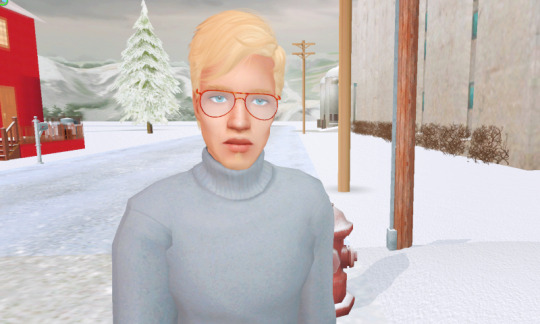
The Harris Sawmill, a prominent structure at the edge of town, stands as a testament to the community's industrious spirit. It’s one of the primary sources of employment in the small town, providing essential materials and craftsmanship that support both local needs and exports. Through many generations, the Harris family has owned this sawmill, and as of today, Michael Harris continues this tradition.

The heart of the operation is the expansive sawmill floor, filled with the hum of machinery and the rhythmic sound of saws cutting through timber. Here, logs are transformed into beams, planks, and various wood products.
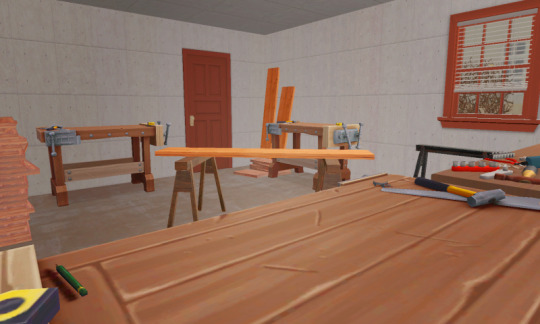
Adjacent to the main floor is a workshop where workers build and assemble various wooden structures. This area is stocked with tools and workbenches, creating a space where creativity and craftsmanship converge. From custom furniture to intricate carvings, the workshop showcases the town’s skilled artisans.
As of year 2, the employees of the sawmill are:

Markus Estrada: Foreman. As the foreman, Markus oversees the day-to-day operations on the floor. He ensures that the work is done safely and efficiently, balancing the demands of Michael with the needs of the workers. His leadership is respected, providing a buffer between the workers and Michael’s stringent expectations.
Bill Kwon: Welder. Bill handles all the metalwork, ensuring that the machinery is well-maintained and that any custom metal fittings or repairs are expertly executed. His precision and skill are vital to the smooth running of the sawmill.
Nasir Bahij. Crane Operator. Nasir skillfully operates the crane, moving large logs and heavy materials with ease. His role is critical in maintaining the flow of raw materials into the sawmill and finished products out to customers.
Max Ford. Cladding Installer. Max specializes in cladding, applying finishes and protective layers to wood products. Her attention to detail ensures that the sawmill’s output meets the highest standards of durability and aesthetics.
Damian Murphy. Drill Press Operator. Damian operates the drill press, creating precise holes and cuts needed for various wood products. His meticulous nature and technical expertise contribute significantly to the quality of the mill’s craftsmanship.

At the front of the sawmill is a small hardware store managed by Michael Harris. The store is well-stocked with tools, building materials, and supplies needed for both professional projects and DIY endeavors.
51 notes
·
View notes
Text
AN ARTICLE ON THE BRITISH LOOTING FROM AFRICA
AND SUFFERING OF AFRICANS
The British should return every loot of all kinds back to Africa
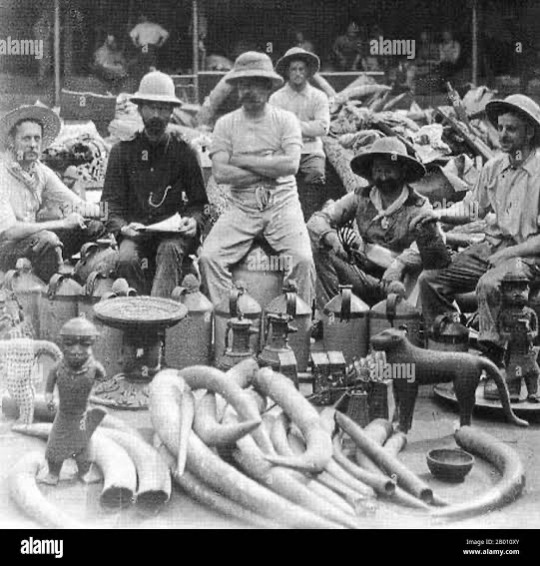

IF THEY CONDEMN SLAVE TRADE THEY SHOULD START BY RETURNING THE LOOTS COLLECTED FROM AFRICA ALL IN THE NAME OF TRADE AND RELIGION ,IF OUR CULTURE WAS BAD WHY DID THEY TAKE AWAY OUR HERITAGE AND STORE THEM IN A MUSEUM ?
The looting of Africa during the colonial era occurred through a combination of methods and strategies employed by European colonial powers, including Britain. Here are some of the ways in which Africa was looted during this period:
Military Conquest: European colonial powers, including the British, often used military force to conquer and control African territories. This involved armed conflicts, wars of conquest, and the suppression of local resistance movements. Through these military campaigns, colonial powers gained control over land and resources.
Resource Extraction: One of the primary motivations for colonialism in Africa was the exploitation of its abundant natural resources. European colonial powers, including Britain, extracted valuable resources such as minerals, rubber, timber, and agricultural products from African colonies. These resources were often taken for the economic benefit of the colonial powers.
Forced Labor: Colonial powers imposed forced labor systems on Africans to work in mines, plantations, and other labor-intensive industries. These labor practices were exploitative and often involved harsh working conditions and little compensation.
Taxation and Economic Exploitation: Africans were subjected to unfair taxation systems that drained wealth from their communities. Colonial administrations imposed taxes on land, crops, and other economic activities, forcing Africans to generate revenue for the colonial authorities.
Land Dispossession: Africans frequently lost access to their ancestral lands as colonial governments allocated land to European settlers and corporations. This land dispossession disrupted traditional agricultural practices and led to social and economic dislocation.
Confiscation of Cultural Artifacts: Colonial powers often confiscated cultural artifacts, sculptures, art, and religious items from Africa. These items were frequently transported to Europe and ended up in museums, private collections, or auction houses.
Unequal Trade Agreements: Colonial powers imposed trade agreements that favored their own economies. Africans often received minimal compensation for their raw materials and agricultural products, while European countries reaped significant profits from these trade relationships.
Suppression of Indigenous Cultures: The suppression of indigenous African cultures and languages was another aspect of colonialism. European powers sought to impose their own cultural norms and values, often devaluing or erasing African traditions.
Missionaries played a complex role in the context of colonialism and the looting of Africa. While their primary mission was to spread Christianity and convert indigenous populations to Christianity, their activities and interactions with colonial authorities had various effects on the looting of Africa:
1. Cultural Influence: Missionaries often sought to replace indigenous African religions with Christianity. In doing so, they promoted European cultural norms, values, and practices, which contributed to cultural change and, in some cases, the erosion of traditional African cultures.
2. Collaboration with Colonial Powers: In some instances, missionaries worked closely with colonial authorities. They provided moral and religious justification for colonialism and sometimes acted as intermediaries between the colonial administration and local communities. This collaboration could indirectly support the colonial exploitation of resources.
3. Access to Resources: Missionary activities occasionally granted them access to valuable resources and artifacts. They may have collected religious objects, manuscripts, and other items from indigenous communities, which were sometimes sent back to Europe as part of ethnographic or religious collections.
4. Education and Healthcare: Missionaries established schools, hospitals, and other institutions in African communities. While these services were aimed at spreading Christianity, they also provided education and healthcare to local populations, which could have positive impacts on individuals and communities.
5. Advocacy for Indigenous Rights: Some missionaries, particularly in later years, became advocates for the rights of indigenous populations. They witnessed the injustices of colonialism and spoke out against the mistreatment of Africans, including forced labor and land dispossession.
6. Conversion and Social Change: The conversion of Africans to Christianity brought about significant social changes in some communities. It could lead to shifts in social hierarchies, family structures, and gender roles, sometimes contributing to social upheaval.
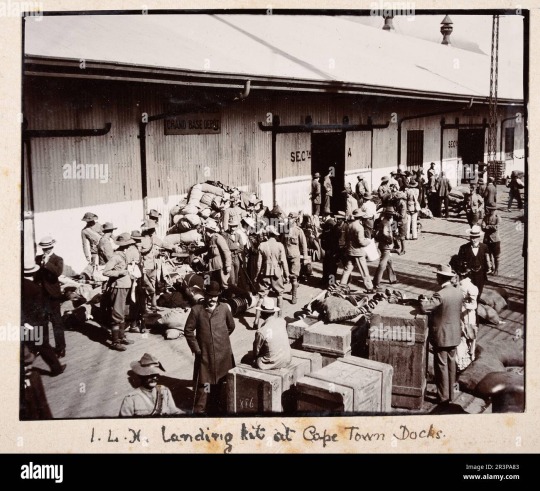

1. Cultural Bias: The British, like many Europeans of their time, often viewed their own culture, including Christianity, as superior to the indigenous cultures and religions they encountered in Africa. This cultural bias led to the condemnation of indigenous African religions and gods as "pagan" or "heathen."
2. Religious Conversion: Part of the colonial mission was to spread Christianity among the indigenous populations. Missionaries were sent to Africa with the aim of converting people to Christianity, which often involved suppressing or condemning traditional African religions and deities seen as incompatible with Christianity.
3. Economic Interests: The British Empire, like other colonial powers, was driven by economic interests. They often saw the resources and wealth of African societies as valuable commodities to be exploited. This economic agenda could involve looting or confiscating sacred artifacts, including religious objects, for financial gain.
4. Ethnographic Research: Some British colonial officials and scholars engaged in ethnographic research to study African cultures, including their religious practices. While this research aimed to document indigenous cultures, it could sometimes involve the collection of religious artifacts and objects, which were then sent to museums or private collections in Europe.
5. Cultural Imperialism: Colonialism was not just about economic and political domination; it also involved cultural imperialism. This included an attempt to impose European cultural norms, values, and religious beliefs on African societies, often at the expense of indigenous traditions.
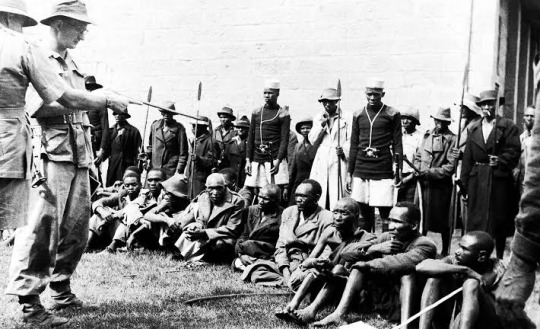
The issue of repatriating cultural artifacts looted from Africa during the colonial era has gained significant attention in recent years. Countries and communities in Africa have long called for the return of these treasures, which hold deep cultural and historical significance. Among the former colonial powers, Britain stands at the forefront of this debate. This article explores the ongoing discussion surrounding Britain's role in returning looted artifacts to Africa.
A Legacy of Colonialism:
Britain's colonial history left a profound impact on many African nations, including the removal of countless cultural treasures. During the height of the British Empire, valuable artifacts, sculptures, manuscripts, and sacred items were taken from their places of origin. These items found their way into the collections of museums, private collectors, and institutions in Britain.
The Case for Repatriation:
Advocates for repatriation argue that these artifacts rightfully belong to the countries and communities from which they were taken. They emphasize the importance of returning stolen cultural heritage as a step towards justice and reconciliation. Many African nations view these artifacts as integral to their cultural identity and heritage.
International Momentum:
In recent years, there has been a growing international momentum to address this issue. Museums and institutions worldwide are engaging in discussions about repatriation. Some institutions have initiated efforts to return specific items to their countries of origin, acknowledging their historical and moral responsibility.
Britain's Response:
Britain, home to several renowned museums housing African artifacts, has faced increasing pressure to address this issue. The British Museum, for instance, has faced calls to repatriate numerous artifacts, including the Benin Bronzes and the Elgin Marbles, which have origins in Africa and Greece, respectively.
In response to these demands, some British institutions have started to collaborate with African countries to explore the possibility of returning certain artifacts. These discussions aim to find mutually agreeable solutions that respect both the historical context and the cultural significance of these items.
Challenges and Complexities:
Repatriation is a complex process involving legal, ethical, and logistical challenges. Determining rightful ownership and ensuring proper care and preservation upon return are critical considerations. Additionally, questions arise about how to address the legacy of colonialism and rectify historical injustices.
The Way Forward:
The debate over repatriation is ongoing and highlights the need for respectful dialogue and cooperation between nations. While the return of looted artifacts is an essential step, it should also be part of broader efforts to promote cultural understanding, collaboration, and acknowledgment of historical wrongs.
The issue of Britain returning looted artifacts to Africa is part of a global conversation about justice, cultural heritage, and historical responsibility. While there are complexities to navigate, the growing recognition of the importance of repatriation signifies a potential path forward towards reconciliation and healing between nations and their shared history. The ongoing discussions reflect a commitment to addressing past injustices and fostering a more inclusive and culturally rich future.
They condemn slave trades yet they’re still with our treasures and cultural artifacts and heritage
#life#animals#culture#aesthetic#black history#blm blacklivesmatter#anime and manga#architecture#black community#history#blacklivesmatter#black heritage#heritage
217 notes
·
View notes
Text
Socialism: Utopian and Scientific - Part 31
[ First | Prev | Table of Contents | Next ]
We have seen that the capitalistic mode of production thrust its way into a society of commodity-producers, of individual producers, whose social bond was the exchange of their products. But every society based upon the production of commodities has this peculiarity: that the producers have lost control over their own social inter-relations. Each man produces for himself with such means of production as he may happen to have, and for such exchange as he may require to satisfy his remaining wants. No one knows how much of his particular article is coming on the market, nor how much of it will be wanted. No one knows whether his individual product will meet an actual demand, whether he will be able to make good his costs of production or even to sell his commodity at all. Anarchy reigns in socialized production.
But the production of commodities, like every other form of production, has it peculiar, inherent laws inseparable from it; and these laws work, despite anarchy, in and through anarchy. They reveal themselves in the only persistent form of social inter-relations — i.e., in exchange — and here they affect the individual producers as compulsory laws of competition. They are, at first, unknown to these producers themselves, and have to be discovered by them gradually and as the result of experience. They work themselves out, therefore, independently of the producers, and in antagonism to them, as inexorable natural laws of their particular form of production. The product governs the producers.
In mediaeval society, especially in the earlier centuries, production was essentially directed toward satisfying the wants of the individual. It satisfied, in the main, only the wants of the producer and his family. Where relations of personal dependence existed, as in the country, it also helped to satisfy the wants of the feudal lord. In all this there was, therefore, no exchange; the products, consequently, did not assume the character of commodities. The family of the peasant produced almost everything they wanted: clothes and furniture, as well as the means of subsistence. Only when it began to produce more than was sufficient to supply its own wants and the payments in kind to the feudal lords, only then did it also produce commodities. This surplus, thrown into socialized exchange and offered for sale, became commodities.
The artisan in the towns, it is true, had from the first to produce for exchange. But they, also, themselves supplied the greatest part of their individual wants. They had gardens and plots of land. They turned their cattle out into the communal forest, which, also, yielded them timber and firing. The women spun flax, wool, and so forth. Production for the purpose of exchange, production of commodities, was only in its infancy. Hence, exchange was restricted, the market narrow, the methods of production stable; there was local exclusiveness without, local unity within; the mark in the country; in the town, the guild.
But with the extension of the production of commodities, and especially with the introduction of the capitalist mode of production, the laws of commodity-production, hitherto latent, came into action more openly and with greater force. The old bonds were loosened, the old exclusive limits broken through, the producers were more and more turned into independent, isolated producers of commodities. It became apparent that the production of society at large was ruled by absence of plan, by accident, by anarchy; and this anarchy grew to greater and greater height. But the chief means by aid of which the capitalist mode of production intensified this anarchy of socialized production was the exact opposite of anarchy. It was the increasing organization of production, upon a social basis, in every individual productive establishment. By this, the old, peaceful, stable condition of things was ended. Wherever this organization of production was introduced into a branch of industry, it brooked no other method of production by its side. The field of labor became a battle-ground. The great geographical discoveries, and the colonization following them, multiplied markets and quickened the transformation of handicraft into manufacture. The war did not simply break out between the individual producers of particular localities. The local struggles begat, in their turn, national conflicts, the commercial wars of the 17th and 18th centuries.
[ First | Prev | Table of Contents | Next ]
23 notes
·
View notes
Text
Ribeauvillé
Canon EOS R
24-105mm F4 DG OS HSM | Art
ƒ/8.0
24.0 mm
1/125
iso 125

(FR)
Ribeauvillé est une commune française située dans le département du Haut-Rhin, en région Grand Est. Elle fait partie de la collectivité européenne d’Alsace et est située à environ 17 km de Colmar. Avec une population de 4 682 habitants (au 1er janvier 2021), Ribeauvillé est considérée comme une petite ville.
Histoire et patrimoine
Ribeauvillé a une histoire riche et variée, remontant au IXe siècle avec la présence d’un domaine agricole nommé Ratbaldsvilare. Au Moyen Âge, le village est mentionné comme un centre de production de vins et de bières. Les bâtiments historiques du village, notamment les maisons à colombages, datent du XVIe au XVIIIe siècle.
Tourisme et activités Ribeauvillé est un village touristique important, proposant de nombreuses activités et attractions :
Visites de caves et de domaines viticoles, tels que le domaine Louis Sipp et le domaine Agapé, pour découvrir les vins d’Alsace. Promenades à pied ou à vélo dans le village et ses environs, pour admirer les maisons à colombages et les vignobles. Châteaux de Ribeauvillé : deux des trois châteaux, Saint Ulrich et Girsberg, sont accessibles et proposent des visites guidées. Marché de Noël : chaque année, le village accueille un marché de Noël unique, avec animations, dégustations de vins et de produits locaux. Espace Balnéo : un centre de bien-être proposant des bassins intérieurs, un sauna et un hammam. Accès et hébergement Ribeauvillé est accessible par la route, à environ 17 km de Colmar. Il existe des parkings en bordure du centre-ville, payants pour les plus proches mais gratuits pour les plus éloignés. L’Office du tourisme est situé au 1, Grand-Rue.
Pour votre hébergement, vous trouverez des hôtels, des gîtes et des chambres d’hôtes dans le village ou dans les environs. Vous pouvez également réserver un séjour à la fois au centre de bien-être Espace Balnéo et au casino Barrière Ribeauvillé.
Culinaire Ribeauvillé est connu pour ses spécialités gastronomiques alsaciennes, notamment le kougelhopf, le pfifferdaj et les vins d’Alsace. Vous pouvez déguster ces spécialités dans les restaurants du village ou les caves viticoles.
(EN)
Ribeauvillé is a French commune located in the Haut-Rhin department, in the Grand Est region. It is part of the European collectivity of Alsace and is located approximately 17 km from Colmar. With a population of 4,682 inhabitants (as of January 1, 2021), Ribeauvillé is considered a small town.
History and heritage Ribeauvillé has a rich and varied history, dating back to the 9th century with the presence of an agricultural estate named Ratbaldsvilare. In the Middle Ages, the village is mentioned as a center of wine and beer production. The historic buildings of the village, including half-timbered houses, date from the 16th to the 18th century.
Tourism and activities Ribeauvillé is an important tourist village, offering many activities and attractions:
Visits to wine cellars and wine estates, such as the Louis Sipp estate and the Agapé estate, to discover the wines of Alsace. Walks or bike rides in the village and its surroundings, to admire the half-timbered houses and vineyards. Ribeauvillé Castles: two of the three castles, Saint Ulrich and Girsberg, are accessible and offer guided tours. Christmas Market: every year, the village hosts a unique Christmas market, with entertainment, wine tastings and local products. Espace Balnéo: a wellness center offering indoor pools, a sauna and a hammam. Access and accommodation Ribeauvillé is accessible by road, approximately 17 km from Colmar. There are car parks on the edge of the city center, paying for the closest but free for the furthest. The Tourist Office is located at 1, Grand-Rue.
For your accommodation, you will find hotels, gîtes and guest houses in the village or in the surrounding area. You can also book a stay at both the Espace Balnéo wellness center and the Barrière Ribeauvillé casino.
Culinary Ribeauvillé is known for its Alsatian gastronomic specialties, including kougelhopf, pfifferdaj and Alsace wines. You can taste these specialties in the village restaurants or wine cellars.
#VisitAlsace#SIGMA 24-105MM F/4 DG OS HSM ART#Lieux#Road-Trip#Alsace#Canon EOS R#Grand Est#24-105MM F/4 DG OS HSM#flickr#outdoor#photographers on tumblr#original photographers#extérieur
23 notes
·
View notes
Text
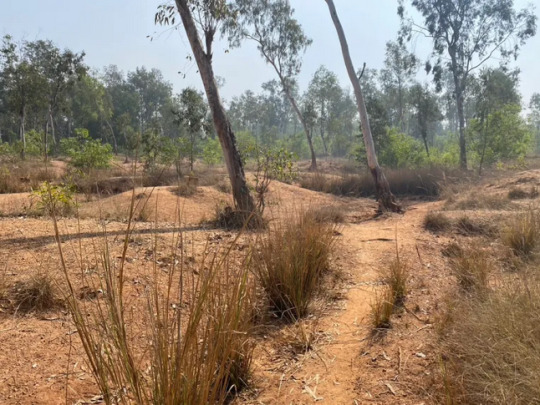
The “khoai” is the name colloquially given to [...] landmasses in and around the Chotanagpur Plateau in eastern India. Rich in iron oxide, these [...] soils are marked by a rugged and often undulating topography, resulting from millennia of erosion from monsoon rains, the many winding rivers that populate the region and action of winds from summer thunderstorms, popularly termed in Bengali as “Kalboishakhi.” The winds and the rains of the kalboishakhi dance across the lands adjoining the Bay of Bengal, often arriving at the horizon with ominous dark clouds right before sunset. [...]
The khoai is a charismatic frontier in an ongoing conversation within South Asian developmentalist imaginaries that call for optimal land use for the purposes of economic growth. [...] As the lateritic soil of the region is not suited for intensive agriculture, efforts have been made to make vast sections of the region arable [...]. And so, slowly, the red soils get taken over the green [...]. This is often done by breaking gullies and hoodoo-like structures [...] to flatten the lands [...]. The ongoing project to turn such “deserts” green has a long history. Yet alongside these projects, is the place that the khoai have in the literary, cultural, and spiritual imagination of many [...] that inhabit the Chotanagpur Plateau. The vastly open and hilly topography, dotted with sal forests [...] has often been the fodder for songs of longing [...]. The horizon of the sky meeting the red gullies of the badlands also form many a narrative that appear in local folk songs and stories. [...] They have also been sites of community-based agroforestry.
---
Recently, such badlands have been termed unproductive in and around my hometown of Santiniketan, India.
As South Asian developmental imaginaries wholly absorb the understanding of terra nullius from modern Euro-American conceptions of land, the idea that “badlands” are necessarily “wastelands” become cemented. Once beloved [...], the dark brown-red hoodoos and gullies today are seen as wasted potential that are depriving the public of much-needed resources, and the possibility of the coming of civilization in accordance with upper-caste aspirations. Khoai today have become sites for proposed plantations facilitated by local forestry authorities, holiday homes and cafes [...], luxury resorts [...].
The ethos of invoking terra nullius has travelled into discourses surrounding “practicality” and the absolute necessity for villagers and small town folks in the area to be saved by their urban-dwelling upper caste counterparts [...] who are interested in their cultural practices, seemingly idyllic agricultural lifeways and the simplicity away from the stresses of cities such as Kolkata. But in this framework, the imaginaries of development are necessarily embedded in compulsory extraction, whether that be of cultural economies, minerals, timber, or land for development. [...]
[B]adlands get turned into places that need saving from being “wasted” by the carelessness and unimaginative shortsightedness of villagers and Adivasis, who are simply seen as ill-equipped to deal with the progression of the global economy.
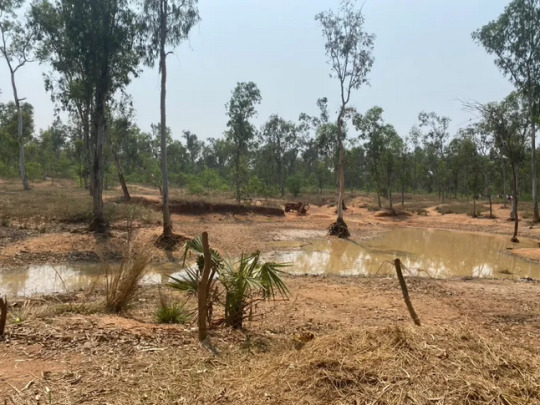
These days, it is hard to find a piece of the “khoai” that has not been subjected to projects of agriculture, forestry, or have been subjugated to [...] property ownership [...]. As the figures of the plantation and its attendant cultures of enclosure and theft of commons creep into places previously overlooked by the tentacles of global extractive forces, many, if not most khoai areas are mobilized to be “redeemed” into productive little plots legible to capital.
I have to wonder about the processes of consent and negotiation that have informed such projects. [...] These areas were in the past predominantly inhabited by Adivasis or Indigenous peoples of India, who had resisted the [...] hierarchies [...].
Badlands such as the “khoai” present a challenge to capitalist imaginaries because they defy its temporalities and its compulsion to make all aspects of being productive and legible to exchanges that foster logics of uninhibited growth. [...]
What, then, does it mean to care for wastelands? [...]
What histories are paved over by concrete? What does development mean in places where inequality is still rife, but there are shiny new roads? What does a future look like, where we can let badlands and “wastelands” just be, as part of ecological and cultural commons?
---
All text above by: Aadita Chaudhury. "Caring for Badlands". The Otter, Network in Canadian History and Environment (NiCHE). Emotional Ecologies series. Ed. Jessica M. DeWitt and Sarah E. York-Bertram. 14 July 2023. [Photography by Aadita Chaudhury, included in the original article. Bold emphasis and some paragraph breaks/contractions added by me. Presented here for commentary, teaching, criticism purposes.]
102 notes
·
View notes
Text

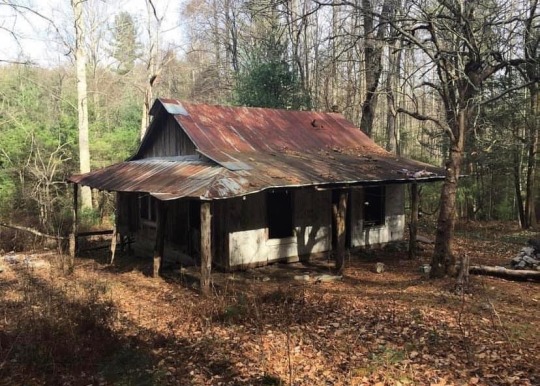
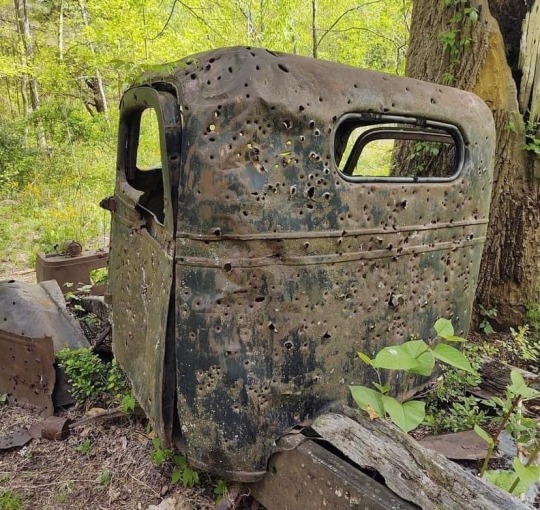

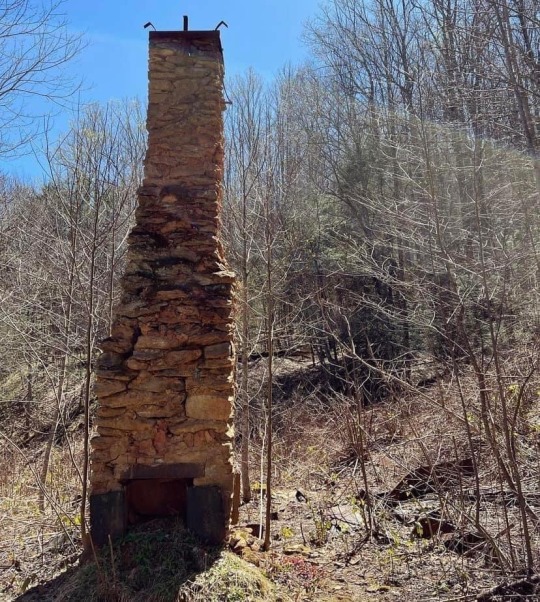
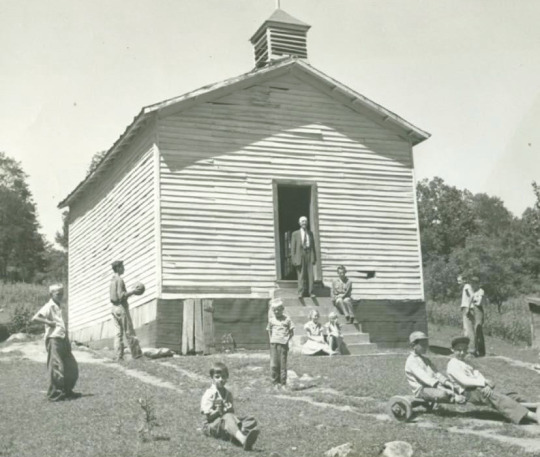


The Ghost Town of Lost Cove:
Lost Cove is located in Yancey County, North Carolina. What once was a thriving mecca for moonshine and timber, Lost Cove is now a ghost town deep in the Pisgah National Forest. Lost Cove was the home to a small community of people from the mid 1800's to the 1950's and it is estimated that around 100 people used to call this town home. Now, all that remains are abandoned homes, rusted cars, crumbling rock walls, and the tombstones of former residents from over a century ago.
What Happened:
In the late 19th and early 20th century the town prospered from farming and logging operations. This brought the railroad into the Blue Ridge community, and with it, more residents. During prohibition the area became a haven for moonshine producers. Due to it’s proximity along the North Carolina and Tennessee border, local law officials couldn’t agree on who had jurisdiction to police the area, which emboldened moonshiners to move to the region for production.
Eventually the timber from logging operations ran low, which led to the decision to halt the railroad service that brought passenger trains through the area. Despite a wagon road, a proper road was never built, and the loss of train service isolated the town residents making it difficult to receive supplies. All of that, combined with the area’s rough terrain, led to a gradual departure of residents until the last known family left in 1957.
Many of the structures that were left behind were consumed by a fire in 2007. However all was not lost (pardon the pun), and adventurous hikers can still find the ruins tucked deep in the forest. You can visit the remains, but only by hiking into the area. There are a couple of ways into the cove, but each requires a full day of in-and-out hiking. The slope can be rather steep in some areas as well so expect dramatic elevation changes
Getting here is a journey in itself. There's two main routes to Lost Cove. The easiest route is the Lost Cove Trail which you'll find from an unlabeled trailhead off Forest Service Road 278. The 2.5-mile trek starts with ascending two miles up a gravel road then leading down Flattop Mountain, eventually ending at Lost Cove. Once here, you can explore the many abandoned buildings, cars, even a small cemetery situated on top of a hill. All places here once breathed with life and although the last remaining resident didn't leave until 1957, it feels as if it's been abandoned for hundreds of years.
•Learn more at https://www.brendajwiley.com/lost_cove.html
•https://www.fs.usda.gov/recarea/nfsnc/recarea/?recid=48550
•https://www.appalachianhistory.net/2021/04/the-vanished-community-of-lost-cove.html
(From Wikipedia and Onlyinyourstate)
#appalachian#appalachian mountains#north carolina#appalachian culture#appalachia#western north carolina#the south#nc mountains#ghost town
36 notes
·
View notes
Text
At a societal level, most people grasp the importance of plants to their lives and the ecosystems they inhabit. The success of humans as a species is inextricably interwoven with the success of plant life on Earth. Without the growth of ancient forests, the biosphere in which we live would not have enough oxygen-rich air for humans to have evolved. Without the cultivation of plants for food, humans could not have settled, built shelters and developed rich and diverse cultures. In practical terms, too, building with plants makes a lot of sense. They grow back and are relatively easy to cultivate, harvest and process into useful materials. Their inherent fibrous structures give our buildings integrity. Trees, processed into timber, work extremely well in both compression and tension. Hollow straws and grasses hold air within them, making them great insulators. The lignin in many different plants can act as a natural binder when heated, meaning that you can essentially squash them, heat them and they stick together into useful sheet materials. Mixed with different binders like clay and lime, they can be given resistance to fire, insects and mould. Bio-based materials are also hygroscopic – meaning that they hold and release moisture. The fact that they can absorb humidity from a room helps to regulate damp and prevent mould from growing. That they are moisture permeable means that water vapour trapped in walls, from rain ingress or generated through leaks, always has somewhere to go. Contemporary buildings, on the other hand, are essentially wrapped in plastic sheets, trapping in moisture and resulting in poor indoor air quality.
Some of the best examples of bio-based buildings are hiding in plain sight in villages, towns and cities across the globe, having withstood decades, sometimes centuries of wear and tear. Timber-framed barns, reinforced with hazel wattle and clay daub can be found dotted across the British countryside. The technique of cob building, using loadbearing clay and straw, was very commonly used in the south-west of England in the 19th century, and many of those cob buildings still stand in Devon and Cornwall today. They are finished in a lime render and look from the outside like any other stone or brick building.
That these techniques have not become more widespread is, at first glance, surprising. The local materials and skills used to build with them were relatively low cost, and when well maintained, extremely durable. The critical thing about these materials, however, is how they were intrinsically linked to land, and specific geographies or bioregions. Industrialisation brought with it a change in agricultural practices and land ownership. Bio-based materials were conventionally derived from agricultural waste; long wheat straw was for example used for thatching, until modern chemical fertilisers that help the wheat grow more quickly weakened the structure of the straw, making it too brittle. Water reed, also used in thatching and as a render substrate, was once abundant in wetlands, but these were drained over the course of the 19th century to develop more arable farmland, cutting by approximately 90 per cent the amount of land on which the reed could grow.
Industrialisation also brought about the development of contemporary insulations, designed initially to prevent energy loss from high-energy machinery and factory spaces. Materials such as concrete and steel, which enabled the quick assembly of spaces of production, ultimately sought markets in domestic construction too. These materials were produced at an unprecedented scale and advertised as technologically advanced, in need of little or no maintenance: symbols of a bright future in which being cold, damp and living with fire risk were a thing of the past. And as these materials became more and more popular, regulatory frameworks began to be designed around them, with lawmakers falling victim to aggressive lobbying and marketing campaigns. Today, testing and certification, mortgages and insurances in the UK and beyond are generally designed around contemporary building systems, and materials which have proven their efficacy over decades of service are considered risky, fringe and ultimately more costly.
The petrochemical and mineral materials we have been building with since the Industrial Revolution require an enormous amount of energy to be extracted and processed. The cement industry, for example, is responsible for about eight per cent of planet-warming carbon dioxide emissions – far more than global carbon emissions from aviation. We cannot continue to build using materials that generate enormous outflows of emissions and have to be shipped across great distances. We need to use materials that are lower in embodied carbon: bio-based materials, derived from plants which can regenerate sustainably and sequester carbon into our buildings.
126 notes
·
View notes
Text
Fleeting Embraces ( Part 1 )

Summary : In medieval London, Aveline regularly encounters Morpheus, the Lord of Dreams, in her dreams. Despite her initial skepticism, she is intrigued by Morpheus' revelations about the power of dreams. Their relationship develops, combining fascination and mutual respect, as Aveline begins to view dreams as having an influence on her waking reality.
--------------------------------------------------------
In 1287, London was a thriving medieval city, but it was still far from becoming the global metropolis we know today. The city was centered around the Tower of London, which was both a fortress and a royal residence. The streets were narrow and winding, with half-timbered wooden houses and thatched roofs.
Daily life in London centered around trade and crafts. Merchants sold their wares in bustling markets, and artisan guilds regulated the production of goods such as textiles, metals, and foodstuffs. The Thames played a central role in the transport of goods and people.
England was ruled by King Edward I at this time. He was known for his expansion of royal power and for his rigorous management of finances. Tensions with Wales and Scotland were also present at this time, and Edward I was involved in conflicts to extend his authority over these areas.
However, Aveline was not at all concerned about the political, social and economic upheavals of her country, living in a small village, far from the capital.
Each dawn saw Aveline emerge from her small home in the village, ready to embrace the challenges and simple moments that dotted her day. His days were punctuated by the tasks of daily life, but also by warm exchanges with the villagers who formed a close-knit community, where everyone knew each other.
The morning often began with a visit to the local market, where she exchanged a few words with the merchants who greeted her with a knowing smile. The stalls were full of local produce, and she lingered to discuss the latest news while shopping. Once her basket was full, she left, happy.
The rest of the morning was spent doing the agricultural tasks that defined his life. Aveline, having always been an orphan, having been educated by the elderly residents, actively participated in the planting and maintenance of crops, working alongside the other villagers. It was a moment when the solidarity of the community was manifested, everyone making their contribution to ensure the success of the harvests.
At lunchtime, she met with the grandmothers to share a simple but nourishing meal. Lively discussions echoed, evoking joys and gossip.
In the afternoon, she devoted time to more personal activities. She indulged in contemplation from the nearby hill, letting her gaze wander over the green fields. Or she made crafts, sharing her skills with those who wanted to learn in the rainy weather.
The evenings were punctuated by gatherings at the community home, where stories, songs and sometimes even a few dances were shared. Aveline, with her mischievous liveliness, brought a refreshing energy to these moments of conviviality.
Then, she returned to her modest home, with a light heart and a spirit nourished by the day's interactions.
Each day was woven with work, human connections and moments that recalled the simple beauty of existence, appreciating it greatly, not wishing to change its place for anything in the world.
As Aveline reached the age of twenty, the caring seniors of the village, guardians of centuries-old traditions, began to weave threads of anticipation around the young woman. A subtle murmur spread, carried by the wind of gossip, announcing that the time had come for Aveline to dive into the mysterious waters of love.
It was during the meal, during a lively conversation, that they spoke of the undeniable charm of Hugo, the village cutie. They tried, with a very maternal delicacy, to suggest that perhaps, between the furrows of the fields and the bursts of shared laughter, a romantic awakening could see the light of day.
But Aveline, a young woman with a mischievous look and a carefree soul, had taken this advice lightly. She responded with bursts of joyful laughter : “Maybe, maybe.”
The grandmothers persisted, persevering in their quest for love for she. They weaved romantic stories, insinuating chance meetings between her and Hugo during village gatherings. They already imagined the soft murmur of conversations shared by candlelight, walks hand in hand through the green hills.
However, Aveline, with her sparkling gaze, continued to joke and push back these romantic aspirations.
“Oh, you are so hasty ! So let the roses bloom at their own pace.”, she exclaimed, laughing.
Aveline, determined to live at her own pace, continued to cultivate the simplicity of her daily life. The elders, although persistent, learned to accept resilience in the face of the fact that she wanted to chart her own path, brushing aside pressures with a mischievous gesture.
Nevertheless, one night, destiny got in her way, putting her on the path to love, with an individual she would never have thought of, or even imagined, not knowing at that moment, his existence and all that would bring.
Morpheus, the ruler of the Dream Domain, moved through the dreamscapes, observing the dreams of mortals, to keep busy and check that everything was going smoothly. It was during one of these nocturnal wanderings that he crossed paths with the young woman.
She stood in the middle of an incredibly realistic dream, on top of a hill, looking up at the moon high in the sky, larger than in reality, surrounded by a singular aura that caught Morpheus' attention.
Her jet black hair delicately framed her oval face, like an ebony waterfall. His eyes, lit by a mischievous glow, reflected curiosity. They were the windows of his soul, wells of wonder, looking at his surroundings, with an intensity like he had never seen, interested in everything that constituted his dream which reflected a part of his sweet life.
Her skin, soft and pale, bore the subtle marks of the simple treatments of the time. It was a blank canvas, a testimony to the simplicity of medieval beauty rituals, where nature and gentleness were the allies of grace.
Dressed in a modest dress of earthy hues, she exuded a natural elegance that contrasted with the fantastical glow of her surroundings.
The content of the dream was imbued with a captivating novelty, distinguishing itself from the usual dreams of sleepers. He perceived in the imagination of this young woman an apparent simplicity which in reality revealed grandeur, each detail displaying exquisite beauty and depth of spirit.
Immaterial, he observed the scene with unusual fascination. The singular soul of this young woman captivated his attention. Gliding silently through the twists and turns of the dream like a night breeze, the Lord of Dreams approached.
He stopped beside her, remaining standing with indefinable subtlety and elegance. Their eyes met, and in that moment, time seemed to stand still.
- By my faith, who are you, good lord ? She asked, her eyes expressing a combination of surprise and intrigue.
He hesitated, then announced in a captivating voice, without even being aware of it :
- I am Dream, the Ruler of Dreams and the Guardian of Endless Nights.
With a smile, she put her hands behind her, looking at him with a slight tilt, as if she thought it was all just a figment of her imagination, aware that she was dreaming.
- Dream ? Really, is that your name, sweet lord ?
- I am known by many names.
- What are you talking about, please ?
- Names woven into the fabric of times. They call me Morpheus, the Weaver of Dreams, or the Guardian of the Gates of Night.
- Understood... She said skeptically, before saying in her soft voice, deciding to play along. Morpheus ? I take a lot ! And what does the honor of your coming bring me, Lord Morpheus ?
He remained silent, thinking about his own motivations and why he was engaging in conversation with a simple human, a race he had hardly liked since Nada's affair. Understanding his silence, Aveline, innocently, patted him lightly on the ground and said to him in her soft and cheerful voice :
- Don't stand, take a seat and come and contemplate the moon at my side. It is so vast that it would be a shame to miss this spectacle, wouldn't it ?
Intrigued by Aveline's invitation, Morpheus silently consented. He sat beside her, his eyes fixed on the moon which bathed the dreamscape in a silvery glow.
After a moment, he broke the silence :
-Your world is enchanting, dear mortal. Your dreams are woven from the unique web of your creativity, a beauty that is often hidden from the other dreams I experience. Every night in your dream kingdom offers a splendid picture, a living painting that stands out among the countless visions of the ephemeral.
- It's nice to think that the Master of Dreams would deign to linger in this simple reverie, and what's more, who would tell me who appreciates it, right ?
- Simplicity sometimes conceals an unsuspected depth. I am intrigued by the soul that shapes these night visions, by this ability to discover greatness in modest details.
Aveline stared at the moon, letting her thoughts sink into the soft clarity.
- Lord of Dreams, can you explain to me what dreams really are ? Why do we have them ? Why are they sometimes beautiful and sometimes scary ?
Morpheus nodded, saying :
- Dear mortal, he began in a voice full of wisdom, dreams are the invisible threads that weave the fabric of your lives. In the soft glow of the lunar glow, you discover worlds that go beyond the limits of your daily reality. These night visions are the keys to your imagination, the back doors to realms where the rules of the material world fade away.
He paused, watching the reflection of the moon's glow in the villager's astonished eyes.
-And nightmares, he continued, are the shadows that dance in the darkest corners of your mind. They are the mirrors of your fears, the echoes of the torments that you carry in silence. But remember, even in the darkness, there are lessons to learn, challenges to overcome. Nightmares, although feared, are the forgers of your resilience, the craftsmen who sculpt the strength that lies dormant within you.
Aveline listened to Morpheus' words with a gentle smile, as if she were hearing a fantastic story. His voice, warm and full of candor, broke the silence of the night.
- Oh, kind stranger, your words are woven with the magic of fairy tales. Dreams and nightmares, threads that dance in the mist of the invisible, is this not the work of our fertile imagination, a theater where our minds play out their hidden plays ?
Aveline looked down at the ground and picked up a handful of flower petals, letting them flow through her fingers.
- Maybe we are all like actors in a mysterious show written by the subtle spirit of the night. And you, dear dreamer, would be one of his fleeting creations. The stories you tell me are perhaps the fantasies of my own mind, echoes of my inner world that come to life in this starry night.
She looked up at Morpheus with a spark of curiosity.
- Yet, what would life be without a hint of mystery ? So, so be it, I'll take part in this enchanted game. Tell me more about these dreams woven by the threads of a reality that could only be an ephemeral dream.
A gentle smile floated on Aveline's lips, an invitation to share the wonders of her own world.
- But first, Monsignor, please stop labeling me “mortal”.
Morpheus, perplexed, tilted his head slightly.
- But you are mortal, like all beings who come to my kingdom. Why does this bother you ?
She smiled, expressing gentle patience.
- My lord, the term "mortal" seems to evoke a fragility, an impermanence which, although true, carries with it a connotation of degradation. Each of us is ephemeral, but we preferred to be defined by our essence, our dreams and our actions rather than by our finitude
She paused, letting her words float in the soft night air.
- I am Aveline, a soul who dances in the glow of existence, and although my life is a flame that burns one day, I prefer to be defined by the glow of my dreams rather than by the duration of 'my breath.
She added, with quiet conviction :
- So, if you wish, just name me Aveline.
Seeing Morpheus' eyebrows furrow slightly, she continued :
- My lord, imagine if I named you "Ephemeral of the Dream Kingdom". Although this is technically accurate, wouldn't you think it does justice to the grandeur of your existence ?
She continued with a kind smile.
- When you said your name, Morpheus, you made a fair exchange. So, I simply ask you to call me by my name, a name that, although doomed to fleetingness, aspires to be more than that in the dreams I weave.
Aveline expressed these thoughts with a delicacy that she hoped would allow Morpheus to see the mutual respect behind her request.
Morpheus, still imbued with his ethereal and reserved character, absorbed Aveline's words with an inscrutable expression.
He didn't like the fact that she was asking for fairness between them. However, seeing the glimmer of hope in the young woman's green eyes, he didn't know why, but it calmed his feeling of offense.
After a moment of silence, he responded in a calm and measured voice.
- Well, if the name 'mortelle' displeases you, I will respect your preference, Aveline.
- I thank you from the bottom of my heart, my lord.
A slight smile appeared on Morpheus' immortal lips, showing a subtle recognition of the dialogue that had just taken place between them.
Then, she suddenly left him, waking up in his world.
The following evening, Aveline fell back into sweet sleep, finding herself once again on the ethereal hill. The stars sparkled above her, and the silver light of the moon created a magical atmosphere.
In the dreamscape, she made out a familiar silhouette emerging from the mists of the dream. Morpheus, the Lord of Dreams, reappeared, as enigmatic as the first time. His eyes reflected the silver glow of the moon, and he approached Aveline with unparalleled grace.
- Good evening, Aveline. He whispered in a haunting voice.
She greeted him with a smile.
- I didn't expect to see you again anytime soon. What brings you here, Lord Morpheus, on this occasion ?
The Lord of Dreams, his gaze lost in the stars, confessed :
- I have returned to explore more of this world that your mind created.
Aveline nodded, letting herself be carried away by what she believed to be her imagination, a complicity that she cherished.
- In that case, let's explore it together. She offered, holding out her hand, a warm glow emanating from her.
Morpheus, after silent deliberation, finally accepted, arousing the obvious joy of the young woman. Thus, through fantastic lands, they shared moments of contemplation and discovery. Morpheus revealed new aspects of his kingdom, to the limits of what a human mind could conceive.
During this new adventure, they exchanged words, he confiding fragments of stories about dreamers of the past, souls whose dreams had left an imprint on the very fabric of the dream universe. Aveline, although admiring, could not help thinking that all this could only be the fruit of her imagination.
Finally, as the moon's glow reached its peak, Morpheus announced :
- The time has come for me to take my leave. Aveline, until our next meeting.
Aveline smiles, grateful for these unique moments.
- If it's as you say. In any case, I will await our next meeting with great fervor, Lord Morpheus.
And like the first time, the Lord of Dreams vanishes into the darkness of the dream, leaving Aveline to wake up in her bed.
The nights followed one another, and each evening, Aveline found Morpheus in the kingdom of his dreams. The landscapes changed, the adventures were renewed, but the presence of the Lord of Dreams remained constant.
Aveline, although captivated by these nocturnal encounters, persisted in believing that Morpheus was only a creation of her mind. Morpheus, for his part, continued to reveal fragments of wisdom and enigmas that intrigued Aveline. He spoke of the power of dreams, how they could influence reality, and how each dream contributed to the fabric of the universe.
One evening, as they stood on the shore of a sparkling ocean, Aveline questioned him curiously.
- Lord Morpheus, why do you take your place in my dreams every night ? What force brings you to be present in these places ?
- As I told you before, dreams are portals to the soul, Aveline. Your mind creates worlds of unique beauty that I appreciate, just as I have come to appreciate your presence.
Aveline shook her head with a gentle smile.
- It's fascinating and pleasant to share these moments with you. However, I can't help but believe that this is all just a figment of my imagination.
He approached her, at a distance where she could have felt his breath if he had any, causing the young woman to blush due to the sudden proximity to a man.
- Mortals, in their misunderstanding, think that dreams are only illusions, without influence on the waking world. But that is their mistake. Dreams are fragments of reality woven into the fabric of night, and their power extends far beyond the realm of sleep.
Aveline stared at Morpheus, absorbing his words with some thought. The waves murmured softly around them as they stood on the ethereal shore.
- Do you really believe that our dreams can have any influence on the world with our eyes open, noble lord ? She asked, her eyes showing a mixture of fascination and doubt.
Morpheus inclined his head gravely.
- Each dream is an echo, a subtle melody that resonates in the waking hours, influencing the course of your lives.
Aveline, stepping back, lost herself in the contemplation of the dreamlike stars.
- It is a very strange thought, Sir Morpheus, I say. She said, before she felt herself leaving, a sign that she was waking up.
Two months had passed since the first meeting between the woman and Morpheus. Dreams had become a sanctuary where their connection had deepened night after night.
At that dusk, as Aveline strolled through the cobbled streets of her village on her way home, with a full stomach, she could hear the bursts of laughter from the children in the houses lit by candlelight, making her smile. Sometimes, Aveline wondered what her life could have been like if her parents had not died, but the memories of her childhood would arise and these questions would just as quickly disappear, driven from her head. She did not consider herself unlucky or to be pitied.
Her heart was imbued with a special serenity when she reached the threshold of her little house. However, when she arrived at the door, she jumped, surprised to see a man she did not recognize from the village.
The man's silhouette stood out in the darkness. The pale light of the moon cast dancing shadows across his features, masking his face in an aura of mystery.
-Who are you, noble lord ? She asked, her voice trembling, as she searched the darkness for clues.
The man remained silent, taking a few steps forward, slowly emerging from the shadows. The glow of the moon revealed her features, and Aveline shivered, recognizing the blue eyes that had become so familiar to her in her dreams.
- Please excuse me, but I'm afraid you misunderstand who I am, you know. She stated, trying to appear comfortable and hide her anxiety, knowing she was helpless.
After a moment, the silence becoming heavy, Aveline narrowed her eyes, trying to pierce the veil of the unknown.
- Why are you here ? What is your intention towards me ?
The individual moved a little closer, now visible in his full appearance, and smiled.
- I came to visit you in your world.
Stepping back a little, she looked him up and down, observing his clothes waving silently in the light wind. A long, deep black coat fell gracefully to her feet, creating a stark contrast to the earthy palette of the surrounding landscape. Her dress, a dark yet richly textured hue, revealed a timeless elegance, evoking a mystical aura.
A finely crafted belt adorned her waist, accentuating her slender figure. High boots, made of polished leather, framed his feet. A necklace with a red ruby as a pendant adorned her neck.
Ebony locks spread in a flowing, rippling cascade around her pale face. Deeply black, they seemed to catch the ambient light and reflect a subtle glow, creating a striking contrast with the paleness of his skin. The hair, neither too short nor too long, accentuated her delicate features and piercing eyes.
Although the hair was of equal length, it appeared untouched by the wind, maintaining a carefully maintained appearance.
Aveline felt a shiver run down her spine.
- You... You look like someone I know... But... But that can't be, it can't be.
- It is, Aveline.
The man stepped forward slowly, each step marked with confidence. The proximity became tangible, to the point that Aveline's breath almost caressed the face of the one who didn't have one. She could have felt the quickening rhythm of her own heart, an irregular beat that echoed in the silence of the moment.
Aveline, in a state of fascination and confusion, could not look away from this being who seemed to possess a deep and intimate understanding. Anxiety should have overwhelmed her, pushing her to flee or call for help, but strangely, she remained motionless, captivated.
As the space between them shrank to nothing, Aveline almost whispered to herself :
- Lord Morpheus...?
A glimmer of recognition lit his eyes. The name echoed in his consciousness, conjuring up images of dreams and deep thoughts. Morpheus gave a slight smile.
- Yes, Aveline. Our paths have crossed many times during your dreams.
She felt overwhelmed by a strange warmth, a connection that transcended the rational. His mind, enveloped in this enigmatic presence, tried to untangle the intertwined threads of reality and dreams.
- I... I'm not daydreaming, am I...? She stammered, her eyes searching for answers in the deep gaze of the man before her.
- No, we are not in my kingdom. We are in your world. He replied, an assured calm in his voice.
The words struck Aveline's mind like shards of truth, provoking a confused reflection on the blurred boundary between tangible reality and intangible dreams.
However, before she could unravel this mystery further, the cheerful voices of villagers approaching their position pulled her from her thoughts. Panic gripped her at the idea of being caught alone in the middle of the night with a stranger. Her eyes widened, and she hurriedly opened the wooden door, inviting the man inside.
The Lord of Dreams crosses the threshold with infinite grace. Aveline, still in shock from the situation, closed the door behind them, trying to hide this unusual encounter from the curious eyes of the outside world.
As the voices of the villagers faded away completely, Aveline breathed a sigh of relief. She turned, feeling a wave of calm after the storm of her own dismay. However, the darkness of the room, plunged into the silence of the night, made her realize that she had just brought a man into her home.
The room, devoid of light, because Aveline had not yet lit the candles, accentuated the enigmatic nature of the situation. Despite the darkness, Aveline could feel Morpheus' penetrating gaze on her.
She blushed, embarrassed, already imagining the village grandmothers' gossip about this nocturnal encounter if they knew it.
- I... I apologize, very humbly. She stammered, trying to hide her embarrassment behind a shy smile. It's just... I wasn't expecting a visit, especially at this time.
Morpheus, always calm and reserved, inclined his head slightly in assurance. He seemed to understand the complexity of the situation and the unexpected nature of their meeting in the waking world, nevertheless thinking that she would be happier to see him under these conditions.
Aveline, looking for a pretext to hide the uneasiness in the air, decided to light candles.
- I'm going to light some candles to light up the room a little. It will help us see things more clearly, I think. She announced, trying to maintain some normalcy in what had become a picture of the strange.
Under Morpheus's scrutinizing gaze, she looked around the room looking for candles. His gestures, although deliberate, revealed a certain excitement. She still didn't fully understand what was happening, but she wanted to hide her own insecurities behind a facade of activity.
One by one, the flames danced with the matches, illuminating the room with a flickering glow. Morpheus, once the room was bathed in this warm and soft light, observed the nooks and crannies with particular attention.
Aveline, a little more reassured by the light of the candles, looked away from Morpheus' shadow which seemed to blend into the darkness. She hoped that this subdued atmosphere would help ease the tense atmosphere.
Morpheus' gaze rested on the shelves, decorated with pottery with simple and authentic shapes. The fumes of the dried herbs, carefully arranged in a basket, floated in the air, creating a subtle ambiance that tickled Morpheus's senses. The atmosphere of the room revealed a humble life, but full of nuances, like a living painting that Morpheus was invited to contemplate.
Aveline, watching him do this, felt her head turn, and declared in a calm but perplexing voice :
- I feel the need to take a seat.
She sat, her eyes fixed on Morpheus, waiting for explanations.
Morpheus, while maintaining his aura of mystery, took a seat in the chair that she offered him with almost supernatural grace. His eyes, of infinite depth, met those of the woman. A breath of silence hung over the room before he began to speak, choosing each word carefully.
- I introduce myself again. I am Morpheus, Dream of the Infinites, Lord of Dreams and King of Nightmares, watching over the dreams that populate the night of humanity.
Morpheus' words echoed through the room, tinged with a revelation that transcended human understanding. The woman, although surprised, received these explanations with an astonishing openness of mind. Her eyes held a mixture of fascination and acceptance, as if a part of her had always known that their connection went beyond the limits of her consciousness.
- Morpheus... You are Morpheus, Dream of the Endless... She repeated slowly, letting the weight of this revelation settle. The dreams... Was all this really real ?
- Dreams are as real as life itself, sometimes even deeper in their meanings and truths. He explained, his voice carrying ancient wisdom.
The woman, trying to assimilate this extraordinary revelation, confided to him that she needed time to understand. She held her head in her fingers, closing her eyes, thinking about everything that was happening right now. If she wasn't dreaming or if it was reality. However, when she looked at him, she felt deep inside that she was not sleeping, but that it was indeed happening.
- Why did you come here ? She asked with perceptible excitement, her eyes searching for answers in the enigmatic ocean of Morpheus's pupils.
He responded with a simplicity that contrasted with the complexity of their connection.
- I just wanted to see you, in this waking world.
- Understood... She said, her face betraying her nervousness. Noble lord... Uh... How should I act ? Should I get you something ? A humble offering perhaps ? Or would it be rude of me to let you sit in such a modest chair ? I... I apologize, I...
She stood up, panicking. Morpheus, with the wisdom characteristic of his timeless being, reassured her in a softer voice than usual :
- No need for change or offerings. You can act as you normally would in my presence.
The woman, seeking to follow this advice, replied in a slightly trembling voice, sitting down again and tightening the fabric of her dress around her legs :
- Understood... As usual... Hm...
Her look betrays a mixture of astonishment and respect towards this being who, despite his grandeur, treats her with disconcerting simplicity. However, still in shock from this extraordinary encounter with Morpheus, she took a deep breath and gathered the courage to ask a question that weighed on her tormented mind :
- That would mean that all deities exist ?
Morpheus, with infinite tranquility, replied in the affirmative :
- Yes indeed. Each pantheon, each belief, finds its reality somewhere in the cosmic fabric of the worlds. Gods and goddesses, myths and legends, are all facets of the human imagination made reality.
This response shocked the woman in a way she had never anticipated. Having never been a fervent believer, she found herself confronted with the idea that the deities, which she had always perceived as tales, were in reality existing entities. The tangible presence of Morpheus in front of her forced her into an acceptance that she struggled to integrate.
His gaze betrays deep confusion, a tumult of emotions mingling in the crucible of his consciousness. She could not deny the evidence before her, the existence of gods and goddesses, embodied in the person of Morpheus. It was a revelation that shook the very foundations of his understanding of the world.
Morpheus, sensing his confusion, chose not to add pressure to this already trying revelation by revealing to him that as far as he was concerned, he was above the gods, he was more. He let the woman take time to digest.
Aveline, looking for answers in Morpheus' deep gaze, persisted in her questions.
- So what do you want from me ? Why did you show up at me, who's nothing special, just a humble village girl with no big story ?
Morpheus, inclined to his imperturbable calm, let a hint of a smile appear delicately on his lips.
- Earthly merits cannot have any value in my eyes. He replied softly. What you are, Aveline, transcends simple appearances. I did not come with pre-established expectations. Your essence intrigues me, and the simplicity of your daily life represents a unique reflection in the kaleidoscope of human existence. You are much more than you imagine yourself to be, and it is this essence that guided me to you.
Morpheus' response brought a shy blush to Aveline's cheeks, a complex mosaic of embarrassment and surprise. The idea of being perceived as "interesting" by the Dream Lord aroused conflicting emotions in her. She had never imagined that her simple and unpretentious life could captivate the attention of a being such as him.
A silence fills the room, broken only by the muffled crackling of the candle and the frantic pulsations of Aveline's heart. He observed the young woman with calm intensity, capturing every nuance of her emotion.
After a moment of embarrassment, she timidly raised her eyes to meet those of Morpheus.
- I'm nothing other than... Me... She whispered, uncertain about the interpretation of this new perspective on her existence.
Morpheus, with a deep look in his eyes, replied :
- This is precisely what charms me, Aveline. The purity of the soul, the sincerity of an existence without artifice. Everyone carries a unique story, and yours, although seemingly simple, resonates with a beauty that transcends the limits of the trivial.
Aveline, still blushing but also touched by Morpheus' words, discovered a certain warmth in this unexpected recognition. Concerns about his own importance faded slightly, giving way to a burgeoning curiosity about the deeper significance of this encounter.
The seconds dragged on, and Morpheus, although resolute in his unchanging nature, could not ignore the emotional transformation he had caused in Aveline. As he watched the embarrassment and confusion flash across the young woman's face, a fleeting emotion flashed through her infinite eyes, a wound in her eternal ego, a crack in her imperturbability.
Morpheus, sitting in the tranquility of the dim light, reflects on the nature of this encounter. An unexpected sadness, an echo of regret, manifests in his being. The question lingers in her mind : "Was it a good idea to venture into the life of a simple human like this ?"
A glimmer of hesitation crossed Morpheus's eyes, a rare flash of vulnerability. Despite his infinite wisdom, he also found himself subject to the torments of human emotions, which he explored in a unique way through the twists and turns of dreams.
Rising with thoughtful grace, he advanced towards the door, ready to slip away.
Aveline, coming out of her trance, noticed his intention to leave and stood up with new determination.
- Wait a minute.
The Dream Lord stopped, turning back to her.
Aveline's gaze, tinged with shyness, but carrying a glimmer of audacity, met that of Morpheus.
- Can I... Can I find you in my dreams ? And... Even here, in... In the Waking World ? That's how we say it, right ? She asked, her voice barely audible, mixing embarrassment with vibrant curiosity.
Morpheus, impassive as usual, nodded slightly.
- If this is your wish, Aveline, our paths will cross again in the kingdom of dreams and in the waking world.
The door closed softly behind Morpheus, leaving Aveline alone with her thoughts and the anticipation of the nights to come. The idea of finding the Lord of Dreams in the dream world awakened in her a new emotion, a bridge between reality and imagination that took shape with each beat of her eyelashes.
When she went to bed, Aveline surrendered to the palpable expectation that filled her. In sleep, she delved into the realm of dreams, searching for the familiar figure, which she quickly found, creating an eternal bond between Aveline, the simple villager, and Morpheus, the Dream Lord and the King of Nightmares.
For better and for worse.
----------------------------------------------------------
Author's word :
I hope you enjoyed this first part of the story as much as I enjoyed creating it.
In any case, I'll see you soon for the rest of the events !
#morpheus x reader#sandman morpheus#neil gaiman#morpheus#morpheus sandman#lord morpheus#the sandman#morpheus x oc#morpheus x you#dream of the endless headcanons#dream#dream the endless#dream x reader#dream of the endless x reader#dream of the endless x oc#sandman x reader#the sandman x reader#the sandman netflix#sandman fanfiction#sandman#morpheus x y/n
21 notes
·
View notes
Text



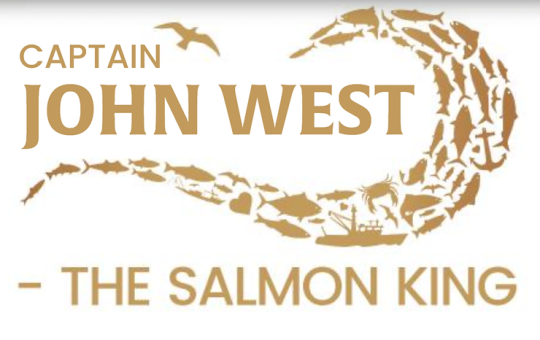

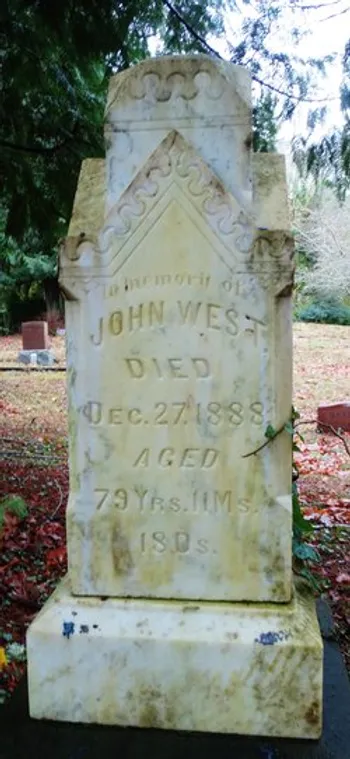
On August 27th 1808 John West was born in Linlithgow.
John West canned fish products are known world wide, but how many people know that the founder of the company was born in Linlithgow?
That at least is the claim made by the company itself - and one echoed in many website entries.
His birthdate is given as the 27th August 1809 but actually tracking down his birth records is proving very difficult. An entry in the Daily Mail in October 2015 states, “The original John West was born in Linlithgow, Scotland, in 1809. After working in the fishing industry in Scotland, he emigrated to the USA where he pioneered the canning of fish.” The John West Company’s own website states that “he cut his teeth in the local Scottish fishing trade”.
So, if he was involved with fishing was he born in a coastal town in Linlithgowshire? Another entry in Wikipedia suggests that he had training as a millwright so was he born on a farm – perhaps, it has been suggested, in the vicinity of Ecclesmachan.
No school building existed in that village until the 1830s so did John attend a school in Linlithgow – perhaps the one which stood behind the Burgh Hall?
What is not in dispute is that, at the age of forty, he emigrated to Canada where he married Margaret and set up house near Quebec. He seems to have begun his working life working in a sawmill - perhaps using his mechanical expertise gained while employed in Scotland. The Californian Gold Rush of the late 1840s saw him trying his luck on the American goldfields where, perhaps having no luck with mineral exploration, he operated a sawmill and opened a general store and post office.
In 1853 he moved to the American state of Oregon and took up a 640- acre Land Claim on the Columbia River. He called the community which grew up there, ‘Westport’. Could that be a tribute to his birthplace in Linlithgow?
He used his entrepreneurial skills to set up a sawmill from which he exported timber to Australia. As a side-line, he also began exporting salmon which migrated up the Columbia River in their thousands. Initially, the fish were salted, packed in barrels and shipped to California from where they were transported to Great Britain.
In the late 1860s he set up his first canning plant – an operation which, by 1873, was producing 22,000 cases of salmon yearly. Using his technical expertise, he invented an automated can-filling machine and a process for turning salmon waste into oil and fishmeal.
During the period when salmon were not so plentiful his machinery was used to can beef, mutton and brambles. By 1882, thirty-nine of his factories were in operation. Some 1700 fishing boats supplied the products he required.
In 1882, he commissioned a 118-foot propeller-driven steamer which he, rather egotistically, called the “John West”. Captain West, as he liked to be called, died in 1888 a very wealthy man.
The company continued under the name “John West” but in the 1920s it was taken over by Unilever. In 1997 it was bought by Heinz who sold it to French-based MW Foods who in turn passed it on to the Thailand based Thai Foods Group. Further research may come up with more details of John West’s birth and upbringing in, or near, Linlithgow. Meanwhile we can but admire the story of a another Scot who became a household name across the world.
7 notes
·
View notes
Video
youtube
How Spain is Turning it's Deserts into a Farmland Oasis - GREENING THE DESERT PROJECT
Spain is home to The Tabernas Desert, known as mainland Europe's only desert. Shockingly scientific research suggests that Spain is set to become completely desertified in the next 80 years, right now 31.5% of Spain is already affected by desertification and 18% is at high risk of becoming irreversibly desert. This is due to the increase in temperatures, droughts, and less precipitation has made southern Europe vulnerable to problems such as “lower food production, soil infertility, decreases in the land’s natural resilience, and reduced water quality” as the European Court of Auditors (ECA) has pointed out in its report "Combating desertification in the EU."
The Iberian peninsular was once covered in ancient oak forests, and over the last centuries was completely deforested for timber use and overgrazing livestock. Currently 16 million hectares of land is used for Intensive industrial agriculture which is rapidly eroding the soil further.
However Spain has been making some remarkable restoration developments turning large areas suffering from desertification into fertile land. This transformation is a major accomplishment considering Spain’s semi arid regions only receive 11 inches of rainfall per year.
We are going to tell you how and why Spain is turning its deserts into bio-diverse ecosystems and fertile farmlands
In this episode of our Greening the Desert Series we will be exploring one of Spain’s many remarkable restoration projects to re-green the desert and turn it back into fertile land.
We will start of by visiting one of the most drastically effected areas in the north eastern coastal region of Spain called Catalonia. Where Coastal forests and farmlands are affected by saltwater intrusion and soil salinization due to sea levels rising, storms, tides, droughts, and water resources management. Salinization of soil negatively impacts plant development and induces land degradation, turning these already semi arid regions into deserts. The increased amount of soil salination is exasperated by the loss of the dune habitat which acts as a natural barrier between the land and the sea.
The sand dunes of coastal Spain having been declining since the 1970s and accelerated in recent decades due to over tourism. Local wildlife has suffered, sea turtles and birds have declined with many species of plants endangered or have disappeared all together.
In 2003 the government started a restoration of the dunes project near Barcelona airport and by 2019 it has expanded its initiative countrywide by using a very simple and cost effective technique.
A report on the Assessment of the Restoration of the Dunes was published by Antoni Calafatlast last year, which have shown a considerable improved in recent years and I have seen first hand how it has helped to restore coastal forests and farmlands since.
#spain#green day#go green#greening the desert project#educate yourselves#educational#europe#españa#our planet#climate change#how to#How Spain is Turning it's Deserts into a Farmland Oasis
10 notes
·
View notes
Text
Holy crap Lois I made an mfn oc
Anyways. Here's Lucy. Lenard's older sister, specialises in making instruments and wood carvings. She also sells some of her knick-knacks and timber. She's very close to Lenard, as they'd often hang out and she'd conjure him up stuff including their cane!
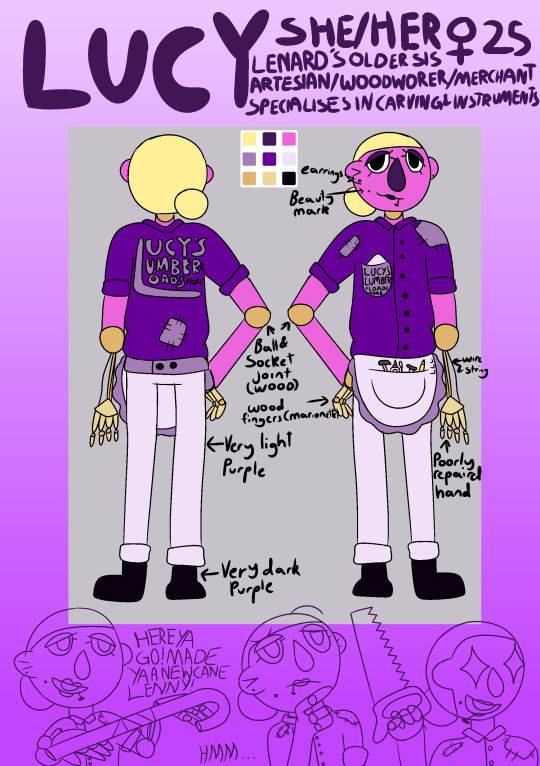
More lore below the cut!
Lucy is Lenard's older sister and is around the puppet age of 25, however is a background character rarely making appearances. Lucy's mature but laid-back attitude was to be a direct contrast to the puppet cast chaotic nature, as she was a more education character. She is neighbourhood's local artesian and craftwoman, notably she specialises in woodwork, carving and creating wooden instruments including guitars, pianos, violins and flutes. She also runs a local sawmill and sells many of her hand made products in her store, titled "Lucy's Lumber & Loads more".
In many of her episodes, like Ray, she'd have her segment where she teaches the puppet gang the minute details and skills along with encouraging them to appreciate the handmade and the effort that goes into it. In many of her episodes she and Lenard would bond over creating instruments or carving them little knick-knacks as gifts, including their cane. Her segments weren't also limited to woodcrafts, carving and work and also included pottery, baking, jam making and various other artesian skills and would often encourage to audience to have a try sometime with adult supervision.
To seperate her from Lenard, she is significantly taller and is around the same height as George. To provide extra emphasis on her hobbies, she was build with wooden ball-and-socket joints and marionette-esc features such as wooden hands. After the shows cancellation, she became too distressed and felt guilty as she could not comfort Lenard enough and eventually tried to gift them more grander and large-scale items such as 5m tall piano, an entire orchestra and a 50-in-1 desk-bookshelf-closet-bed abomination which resulted in her accidentally destroying on her hands. Attempts to fix it have been very difficult as she struggled with one of her hand. Eventually she got into a fight with another puppet and got locked into a storage closet. She awaits the day she can reunite with her sibling, Lenard again and continue her crafts
#lucy OC#Mfn OC#OC#sealzocz#sealzart#sealzstuff#my friendly neighborhood fanart#my friendly neighborhood#my friendly neighborhood oc#oc art#mfn#mfn art#Lucy MFN
21 notes
·
View notes